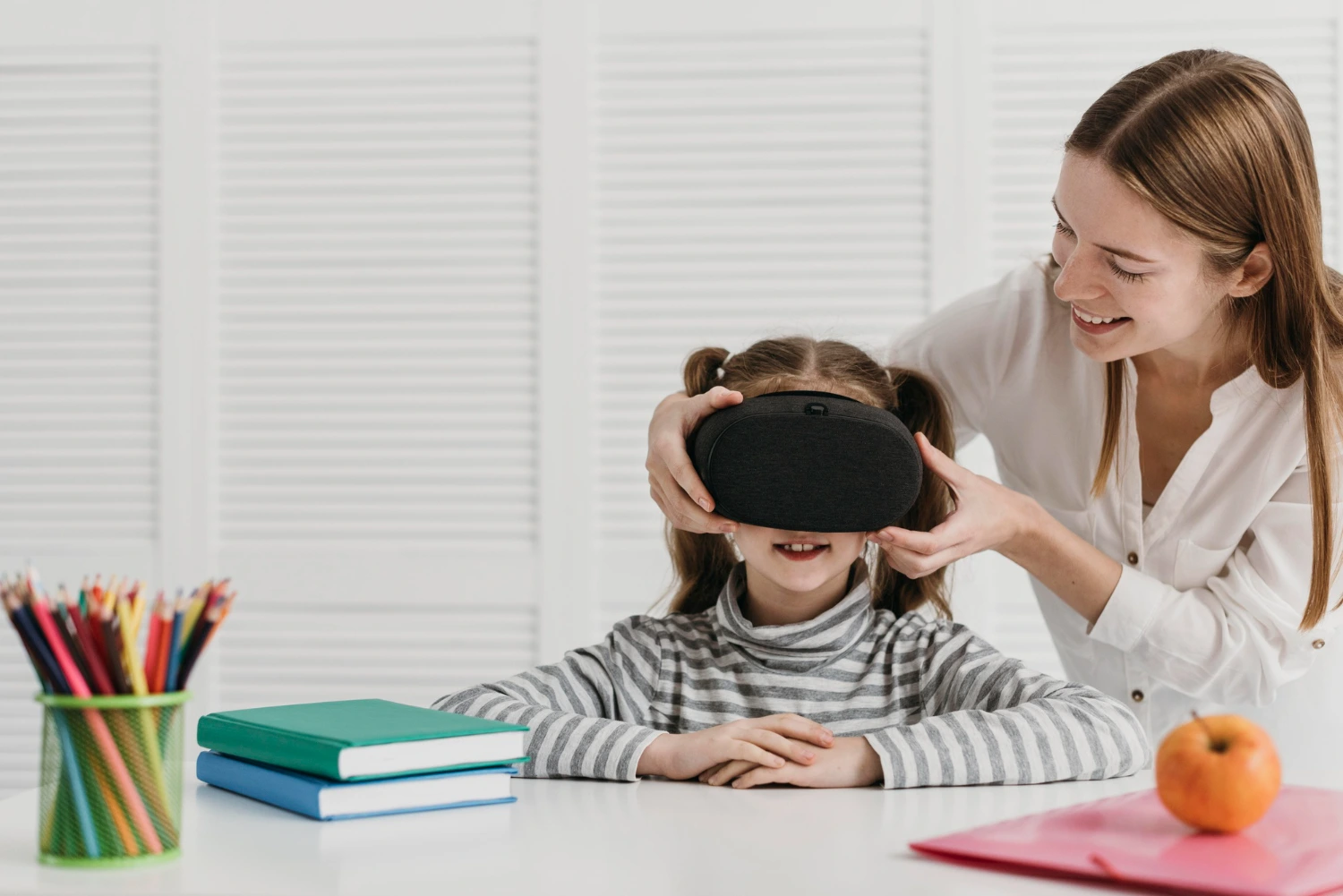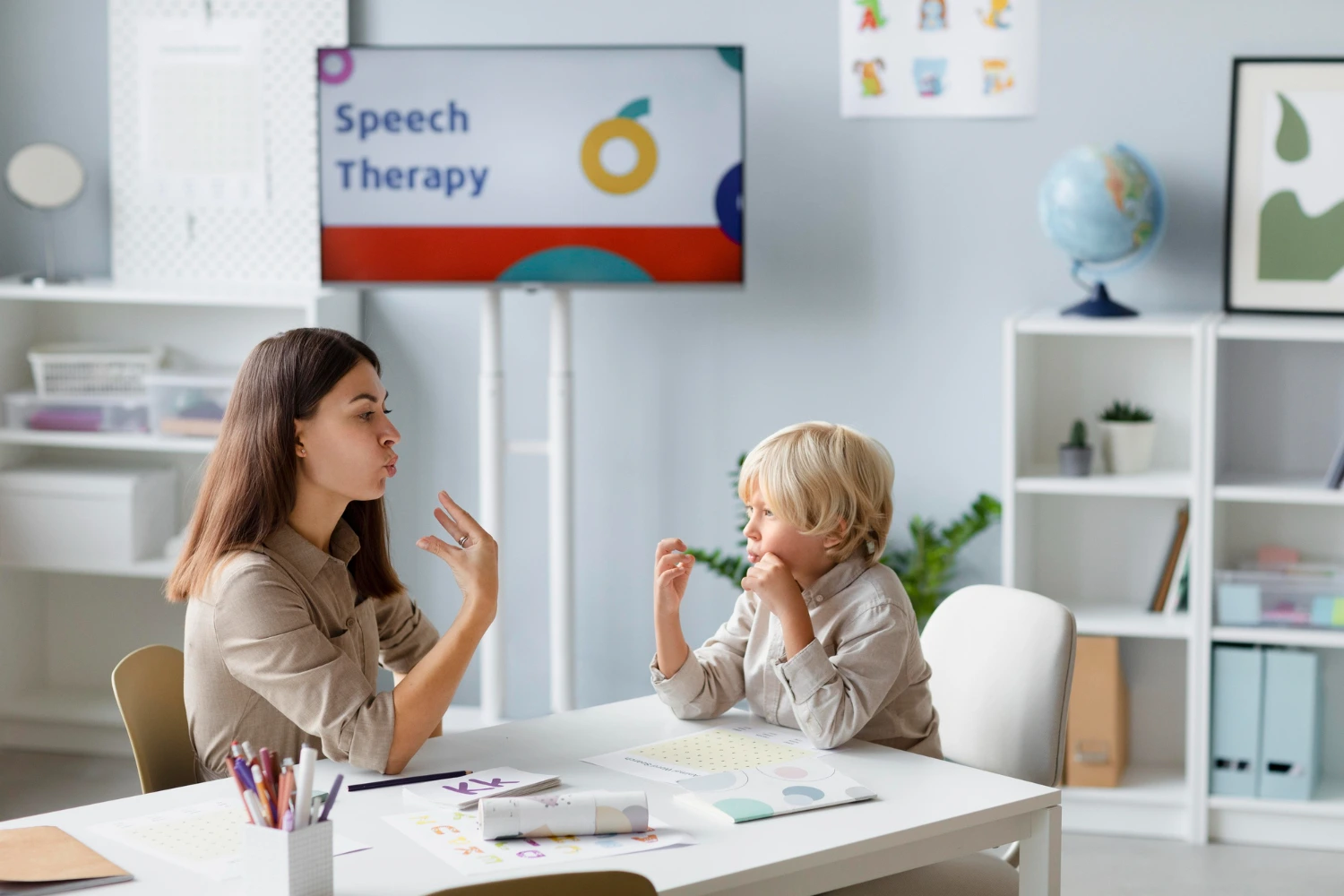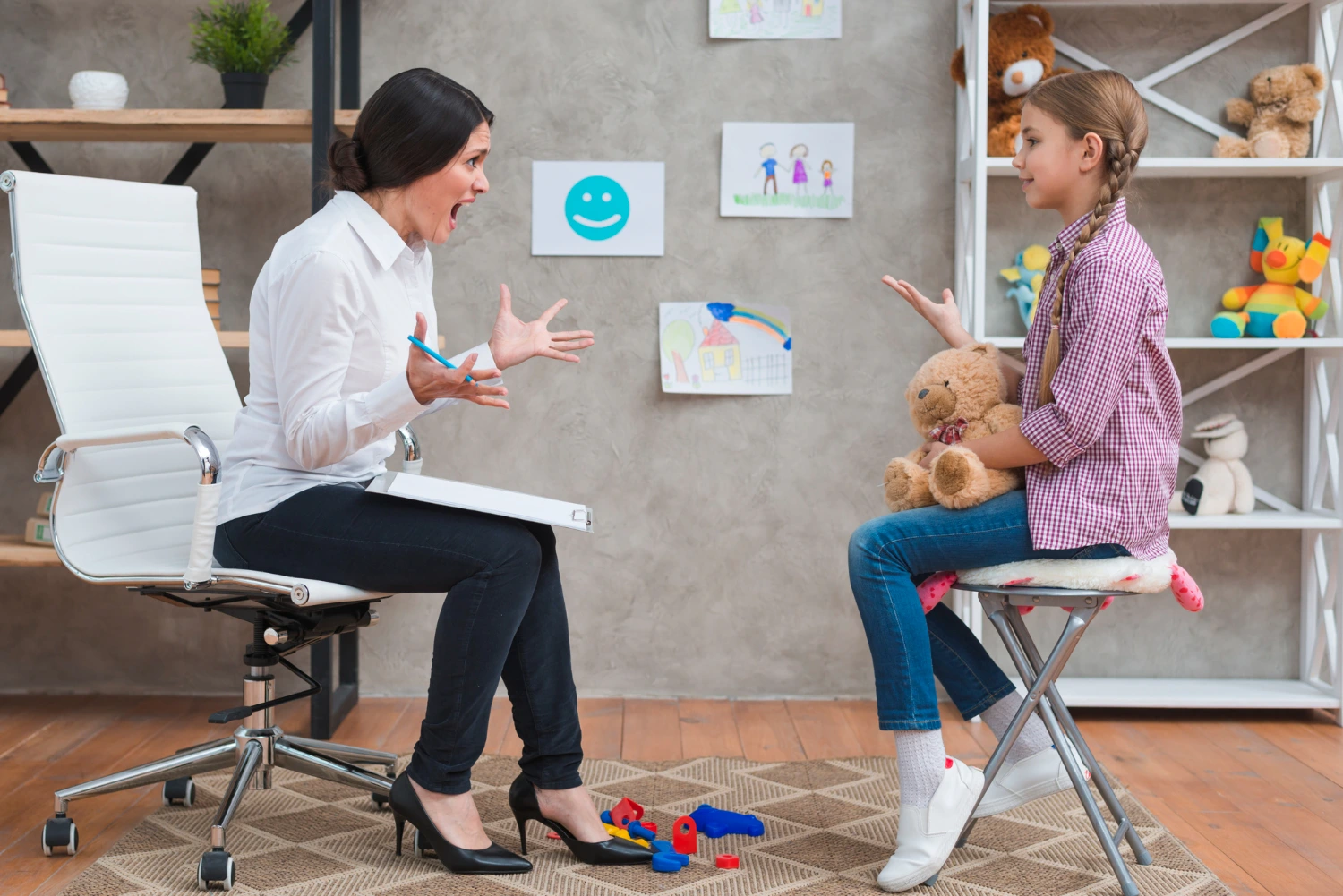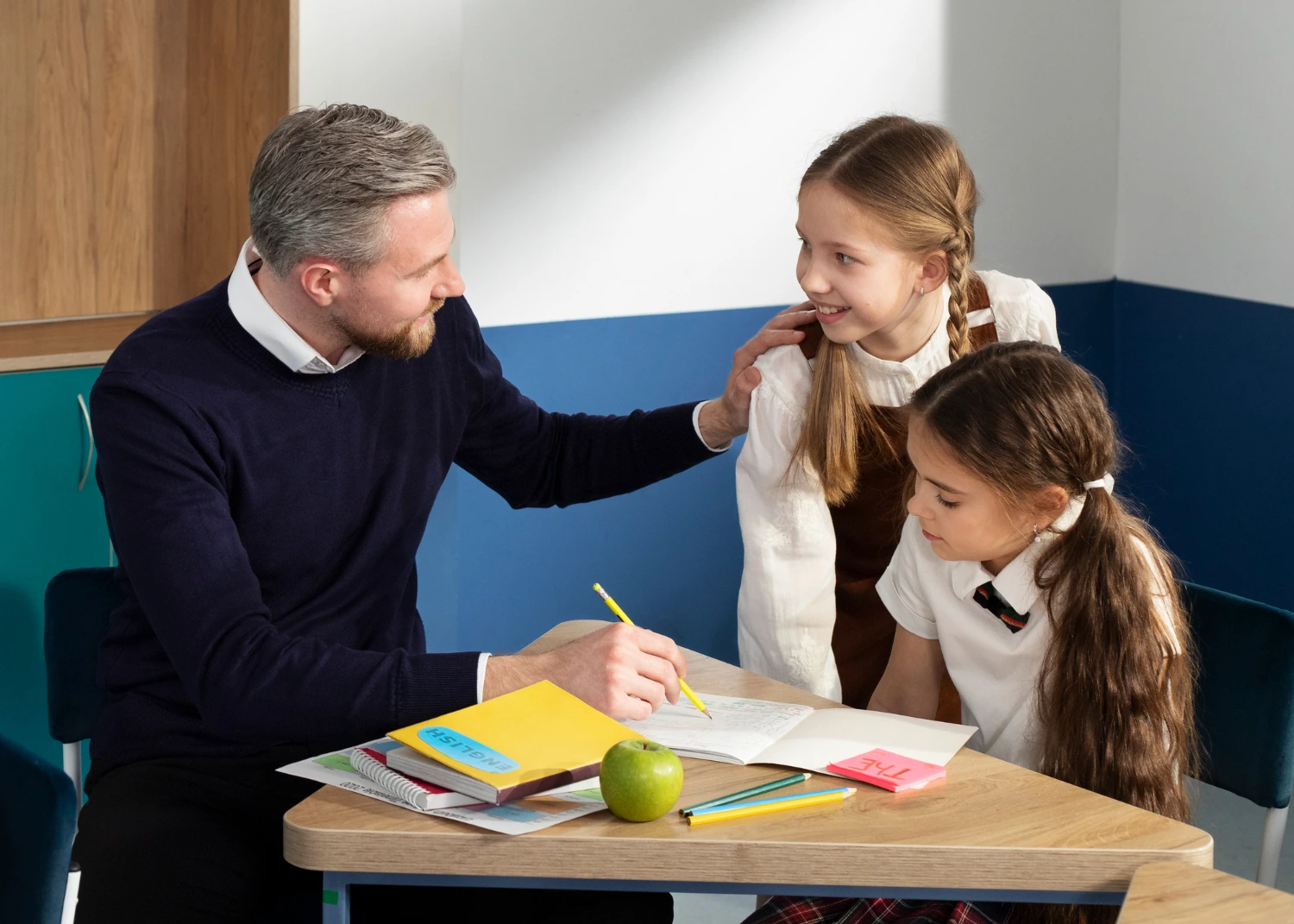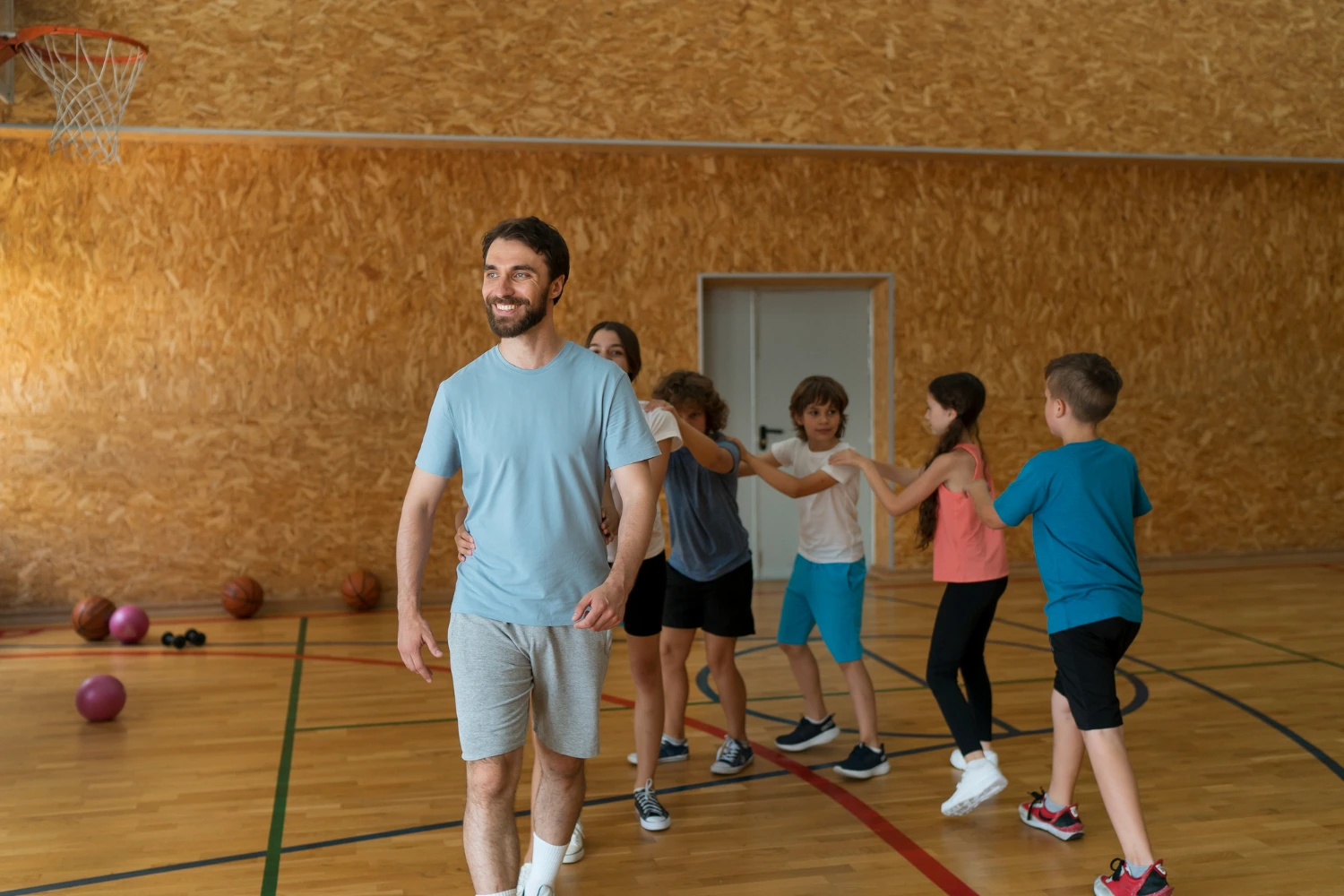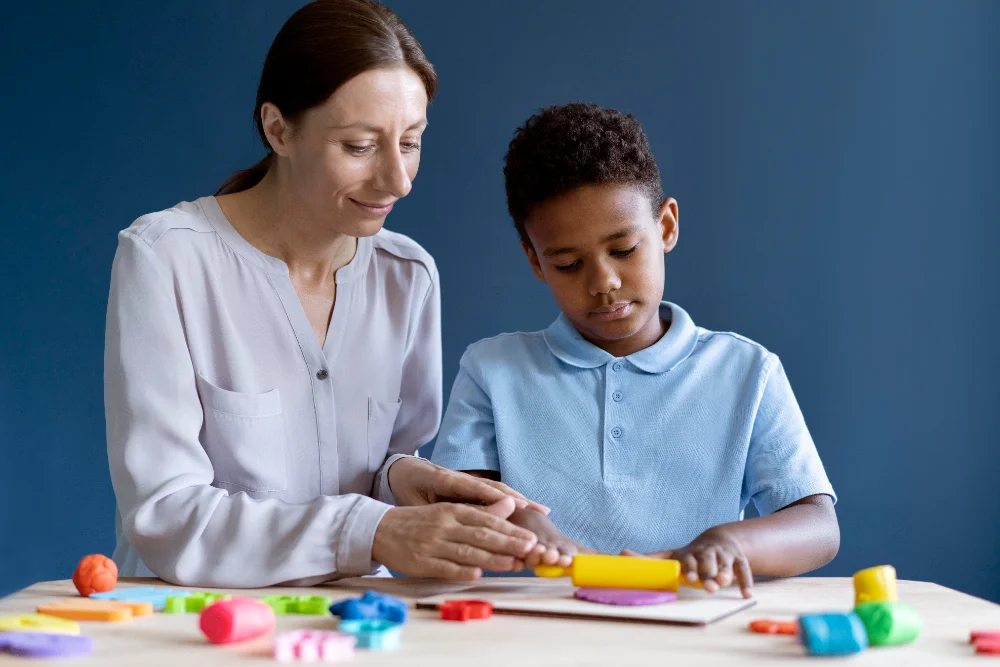
Choose Your Category
Opening Doors to Inclusive Careers: Explore a Spectrum of Job Categories Tailored for Every Special Individual's Potential
Recent Job Listing
From Education to Technology, Healthcare to Creative Arts, Find Meaningful Opportunities.

Every Special Child
Every Special Child (ESC) is a growing organization connecting schools with professionals in the field of education. We are dedicated to delivering excellence with unwavering expectations for each student’s achievement and success. Our team of devoted professionals wholeheartedly ensures the highest quality of services, fostering and upholding strong relationships with schools and professionals.
Each member of our team is thoroughly qualified, certified, and possesses extensive experience, collaborating closely with schools and qualified/certified school professionals.
Our Testimonials
Blogs & News
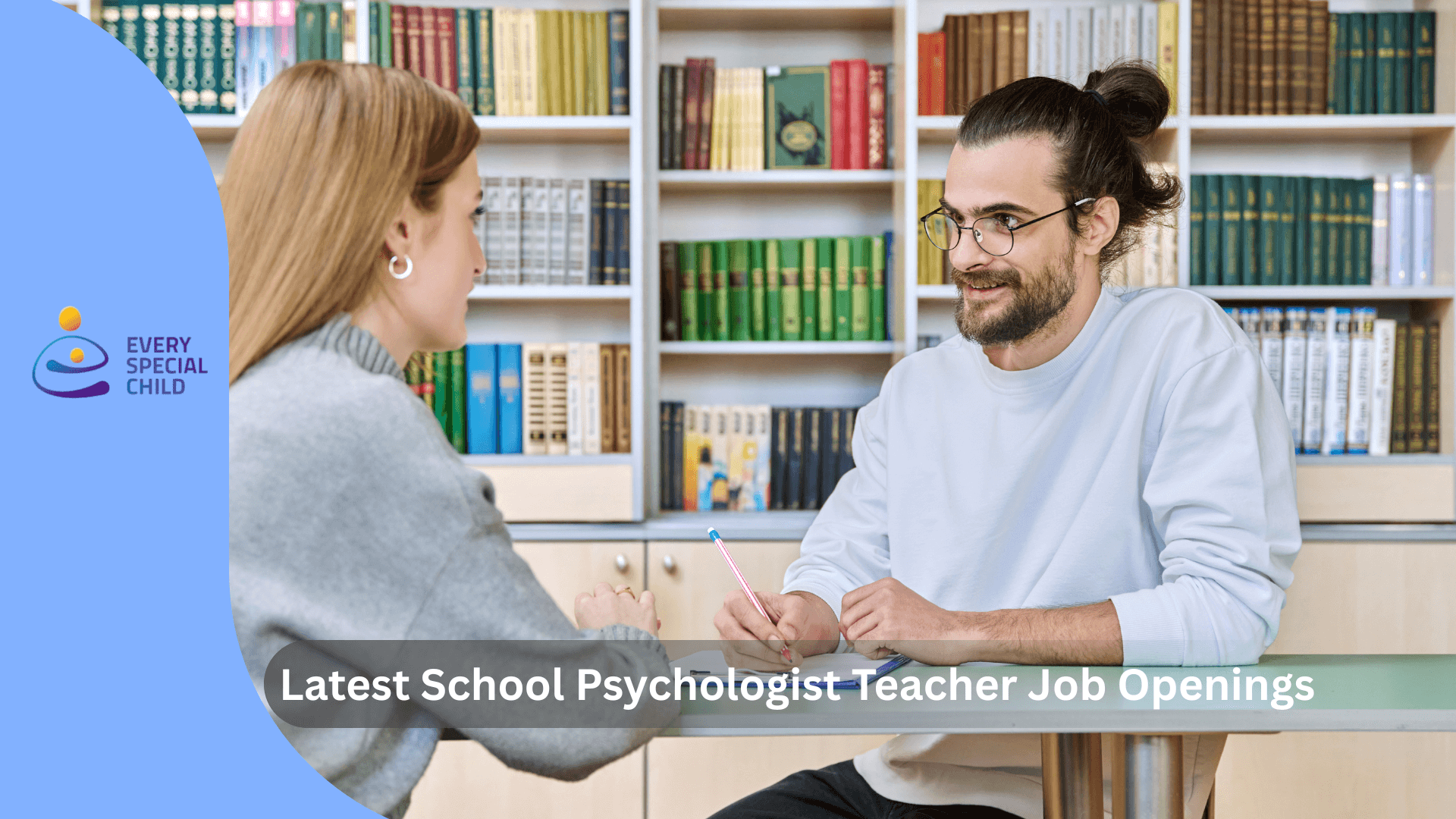
Latest School Psychologist Teacher Job Openings
School Psychologist Teacher Job Openings (U.S.) In 2026 Looking for latest school psychologist teacher job openings Right Now? Discover Where Schools Are Hiring If you’re actively searching for school psychologist teacher job openings in the U.S., you’re entering the market at the right time. Across the country, school districts are urgently hiring qualified professionals to support student mental health, special education, and behavioral success. Apply Now With rising student needs and ongoing staffing shortages, latest school psychologist teacher job openings are available in public school districts, charter schools, and special education programs nationwide. This guide helps you identify where the latest school psychologist teacher job openings are, why demand is growing, and how to secure a position faster. School psychologist teachers are no longer support staff—they are essential pillars of today’s education system. The Current Job Market for School Psychologist Teacher Jobs in the U.S. The market for the latest school psychologist teacher job openings in the U.S. is exceptionally strong. Districts across states like California, Florida, Illinois, Michigan, New York, and Connecticut are consistently posting new openings. Why the demand is surging: Increased focus on student mental health Federal special education compliance requirements Shortages of licensed school psychologists Retirements creating long-term vacancies As a result, latest school psychologist teacher job openings are appearing year-round, not just during traditional hiring seasons. Read another blog. Recent School Psychologist Teacher Job Openings Across the U.S. Connecticut — Stratford & Willimantic Multiple full-time school psychologist teacher job openings serving K–6 students. These roles typically require state licensure and a graduate degree in school psychology. Illinois — Naperville, Aurora & Antioch High demand for latest school psychologist teacher job openings, including contract and bilingual positions. Districts offer competitive pay aligned with the school calendar. Florida — Alachua County & St. Lucie County Florida districts continue posting school psychologist teacher job openings focused on assessments, IEP participation, and student mental wellness initiatives. Nationwide Opportunities Major education job boards list latest school psychologist teacher job openings in New Jersey, Arizona, California, and remote assessment-based roles in select states. Why School Psychologist Teacher Job Openings Are Increasing Long-term structural needs in U.S. education drive the rapid growth of latest school psychologist teacher job openings. Key growth factors: Rising rates of anxiety, trauma, and learning differences in students Legal mandates for evaluations and special education services Districts operating below recommended psychologist-to-student ratios Expanded mental health funding at state and federal levels For job seekers, this translates into: ✔ More school psychologist teacher job openings ✔ Faster hiring timelines ✔ Strong negotiating power Where to Find the Latest School Psychologist Teacher Job Openings To maximize your search for latest school psychologist teacher job openings, use these proven sources: National Job Boards School psychology–focused job boards Major professional networking platforms Education staffing agency Every Special Child State Education Job Portals State-run education job boards often post school psychologist teacher job openings before they appear elsewhere. School District HR Websites Many districts advertise school psychologist teacher jobs directly. Setting up alerts ensures you never miss a new posting. See More. How to Apply for the latest school psychologist teacher job openings Successfully Optimize Your Resume Highlight: School psychologist teacher experience Psychoeducational assessments IEP and special education compliance Collaboration with teachers and families Apply Early Most school psychologist teacher job openings are reviewed on a rolling basis. Network Strategically Professional associations and job fairs significantly improve access to unadvertised, latest school psychologist teacher job openings. Frequently Asked Questions Where are latest school psychologist teacher job openings hiring the most? School psychologist teacher job openings are most active in states with high student populations and shortages, including California, Florida, Illinois, Michigan, New York, and Connecticut. Do latest school psychologist teacher job openings require certification? Yes. Most latest school psychologist teacher job openings require state licensure and often prefer NCSP certification. Are remote latest school psychologist teacher job openings available? Some contract and assessment-only latest school psychologist teacher job openings offer remote or hybrid options, though most roles are on-site. When is the best time to apply for school psychologist teacher jobs? Many districts post openings between January and May, but school psychologist teacher job openings exist year-round due to ongoing shortages. Are school psychologist teacher jobs competitive? Competition varies by location. Rural and high-need districts often have more openings and faster hiring. Final Thoughts: With strong nationwide demand, competitive salaries, and meaningful work, school psychologist teacher jobs in the U.S. offer one of the most stable and rewarding career paths in education. Apply Now
Published on Feb 27, 2026
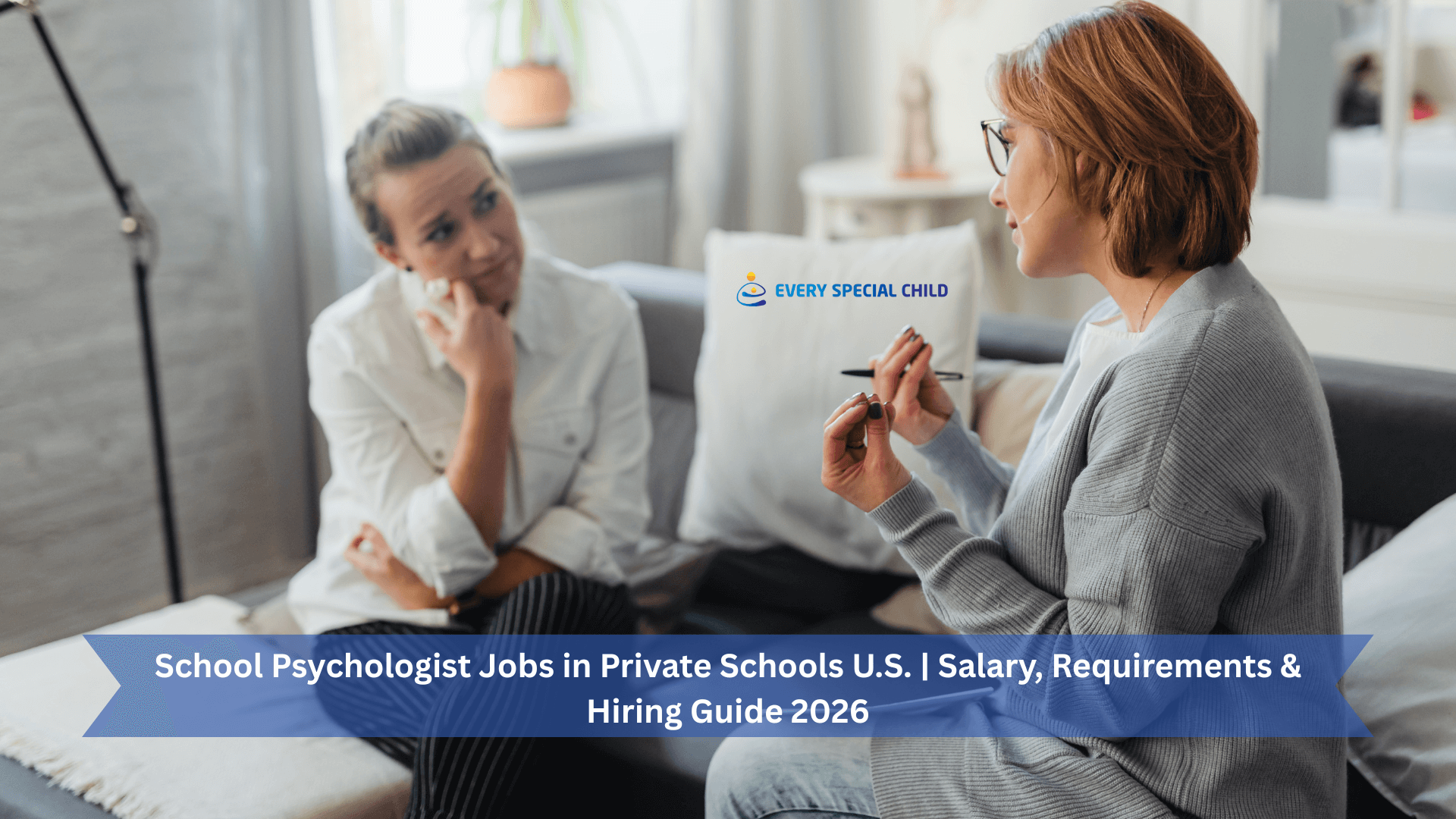
School Psychologist Jobs in Private Schools U.S. – Salary, Requirements and Hiring Guide 2026
School Psychologist Jobs in Private Schools (U.S.) : Complete Career Guide for 2026 Check out below to know How School Psychologist Jobs in Private Schools Offer Flexibility, Autonomy, and Professional Growth If you’re exploring school psychologist jobs in private schools, you’re likely seeking more than just a job—you want professional autonomy, manageable caseloads, career flexibility, and the ability to create meaningful change in students’ lives. Across the United States, school psychologist jobs in private school’s are expanding rapidly as private institutions invest heavily in mental health services, learning support, and student wellness. Apply Now This in-depth guide is designed for U.S.-based professionals researching school psychologist jobs in private school’s. It explains why demand is growing, how private school roles differ from public school positions, expected salaries, licensing requirements, and how to secure a private school psychology job successfully. Why School Psychologist Jobs in Private Schools Are Growing in the U.S. Demand for school psychologist jobs in private school’s is increasing nationwide due to a growing emphasis on student mental health, neurodiversity, and social-emotional learning (SEL). Parents expect personalized academic and emotional support, and private schools are responding by hiring qualified school psychologists. Key drivers behind the growth of school psychologist jobs in private school’s include: Increased national focus on student mental health and emotional resilience Smaller class sizes that allow individualized psychological assessments Higher parent expectations for specialized learning and behavioral support Expansion of private, independent, charter, and therapeutic schools across the U.S. As a result, school psychologist jobs in private school’s now offer long-term stability, professional growth, and high-impact career opportunities. Read another blog. What Does a School Psychologist Do in a Private School? While responsibilities vary by institution, most school psychologist jobs in private school’s include a wide range of clinical, consultative, and educational duties: Conducting psychoeducational and behavioral assessments Supporting students with learning disabilities, ADHD, autism, and emotional challenges Designing and implementing individualized intervention plans Collaborating with teachers, administrators, and families Providing short-term counseling and crisis intervention Supporting and leading social-emotional learning (SEL) initiatives Compared to public school settings, school psychologist jobs in private school’s often allow deeper one-on-one student engagement and more personalized care. Private vs. Public School Psychologist Jobs: Key Differences Smaller Caseloads and Greater Flexibility Most school psychologist jobs in private school’s involve significantly smaller caseloads, enabling school psychologists to provide individualized attention and comprehensive support. Broader Scope of Practice Unlike many public school roles, school psychologist jobs in private school’s often combine assessment, counseling, consultation, and program development responsibilities. Fewer Bureaucratic Barriers Private schools typically have faster decision-making processes, allowing psychologists to implement interventions without lengthy district approvals. Diverse Educational Environments Professionals in school psychologist jobs in private schools may work in faith-based schools, Montessori programs, therapeutic day schools, or college-preparatory academies. See More. Salary Expectations for School Psychologist Jobs in private school’s Salaries for school psychologist jobs in private schools vary based on location, credentials, and experience level. Typical U.S. salary ranges for school psychologist jobs in private school’s: Entry-level school psychologist: $60,000–$75,000 per year Mid-career school psychologist: $75,000–$95,000 per year Senior or specialized school psychologist roles: $95,000–$115,000+ per year While public school salaries may sometimes be higher, school psychologist jobs in private school’s often provide: Performance-based salary growth Lower stress and smaller workloads Greater professional independence Higher overall job satisfaction Education and Licensing Requirements for Private School Psychologist Jobs Most school psychologist jobs in private school’s in the U.S. require: A school psychology master’s or specialist degree (Ed.S.) A doctoral degree (PhD or PsyD) for leadership or highly specialized roles State licensure or certification (requirements vary by state) Nationally Certified School Psychologist (NCSP) credential preferred, but not always required Some private schools offer flexibility with certification timelines, making school psychologist jobs in private schools accessible to experienced clinicians transitioning from other settings. Best States for School Psychologist Jobs in Private Schools The highest demand for school psychologist jobs in private schools is found in states with strong private education networks, including: California New York Texas Florida Massachusetts Illinois Urban and suburban regions consistently offer the most school psychologist jobs in private schools, along with competitive compensation packages. How to Land School Psychologist Jobs in Private Schools To stand out when applying for school psychologist jobs in private schools, candidates should: Highlight experience with individualized assessments and intervention planning Emphasize counseling, SEL, and mental health expertise Demonstrate strong collaboration with families and multidisciplinary teams Tailor resumes and cover letters to private school culture and values Network with private school administrators, recruiters, and professional associations Private schools hiring for school psychologist jobs prioritize adaptability, communication skills, and a student-centered mindset. Benefits of School Psychologist Jobs in Private Schools Professionals working in school psychologist jobs in private schools frequently report: Higher job satisfaction and reduced burnout Stronger relationships with students and families Greater influence on school-wide mental health programs Increased opportunities for leadership and innovation More autonomy compared to public school roles For professionals seeking meaningful, purpose-driven careers, school psychologist jobs in private schools offer a powerful alternative. Frequently Asked Questions Are school psychologist jobs in private schools full-time? Yes. Most school psychologist jobs in private schools are full-time, although part-time and consulting roles are also available. Do private schools require the same certification as public schools? Certification requirements vary, but state licensure is typically preferred for school psychologist jobs in private schools. Is the workload lighter in private school psychologist jobs? In many cases, yes. Smaller caseloads and fewer administrative responsibilities are major advantages of school psychologist jobs in private schools. Can new graduates apply for school psychologist jobs in private schools? Yes. Many school psychologist jobs in private schools are open to early-career professionals with strong clinical training. Are school psychologist jobs in private schools stable long-term careers? Absolutely. As student mental health remains a national priority, school psychologist jobs in private schools continue to grow across the U.S. Final Thoughts: School psychologist jobs in private schools provide a unique combination of professional fulfillment, flexibility, and long-term career growth. For U.S.-based professionals seeking reduced bureaucracy, manageable caseloads, and meaningful student impact, private school psychology careers are an excellent choice. Apply Now With rising national demand and expanding opportunities, now is the ideal time to pursue school psychologist jobs in private schools.
Published on Feb 26, 2026
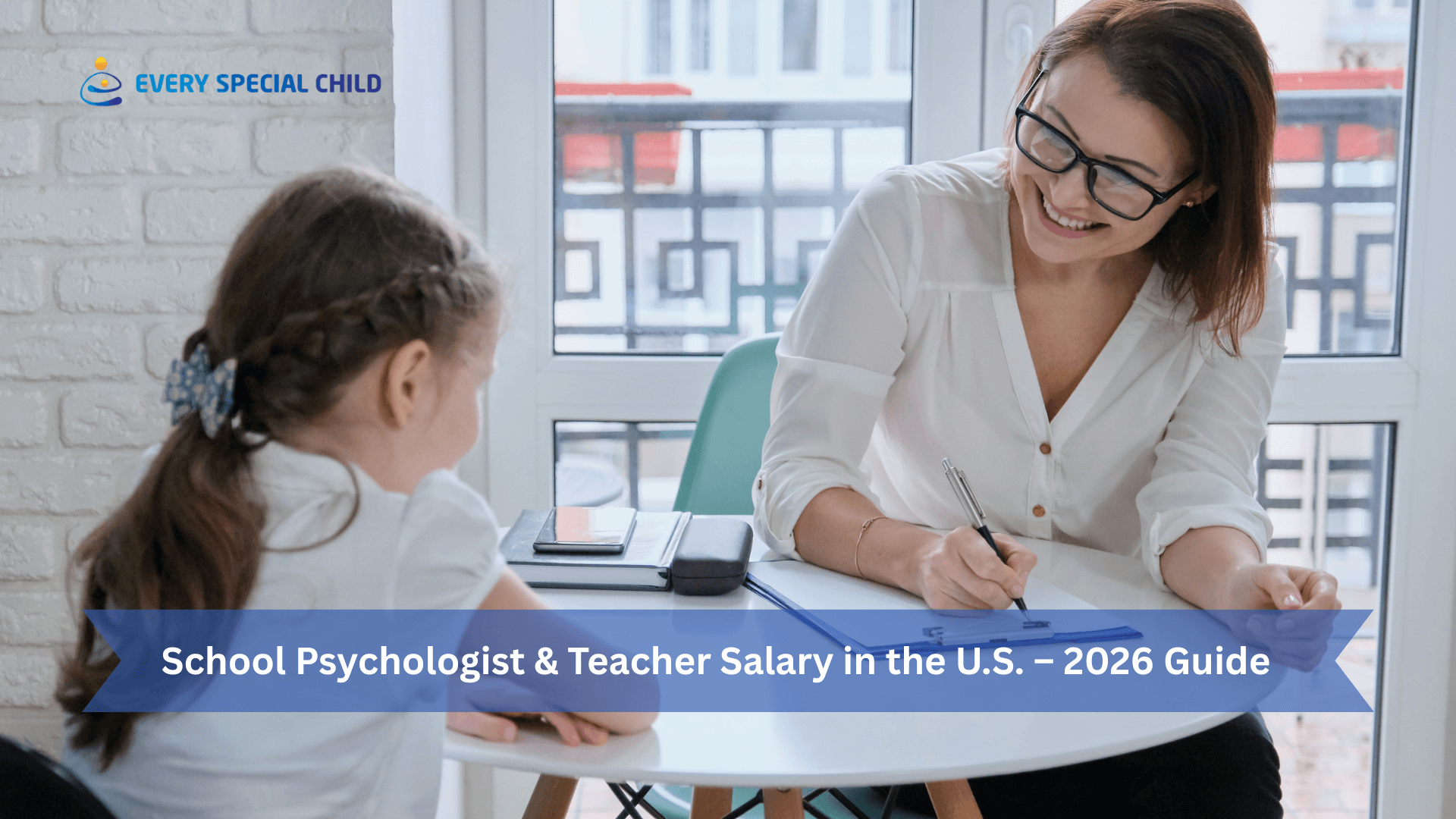
School Psychologist & Teacher Salary in the U.S. – 2026 Guide
School Psychologist Salary in the U.S: Complete Career & Pay Guide. School Psychologist Salary Explained: What You Can Earn Supporting Student Mental Health What if you could build a career that combines education, psychology, job stability, and a meaningful paycheck—without staying in the classroom full-time? For many professionals, that path leads to one key question: What is the school psychologist’s salary in the United States? Apply Now As student mental health becomes a national priority, school psychologists are no longer “support staff”—they are essential professionals. As a result, school psychologist’s salary levels are rising, often surpassing traditional teaching salaries and offering stronger long-term growth. This complete U.S. guide to school psychologist’s salary breaks down average pay, salary growth, influencing factors, benefits, job outlook, and FAQs—so you can decide if this career aligns with both your purpose and your financial goals. What Is a School Psychologist? A school psychologist’s works within U.S. school systems to support students’ academic performance, emotional well-being, and behavioral development. While they collaborate closely with teachers, their role extends far beyond instruction. School psychologists typically: Conduct psychological and educational assessments Determine special education eligibility Develop and monitor Individualized Education Programs (IEPs) Provide behavioral interventions and crisis support Guide teachers, families, and administrators Because of this advanced training and responsibility, school psychologist’s salaries are typically higher than those of many classroom teaching roles. Read another blog. Average School Psychologist’s Salary in the U.S. The average school psychologist’s salary in the U.S. varies based on experience, education level, geographic location, and district funding. National School Psychologist Salary Ranges Entry-level school psychologist’s salary: $60,000–$70,000 Mid-career school psychologist’s salary: $75,000–$90,000 Experienced or doctorate-level salary: $95,000–$110,000+ Most school psychologists benefit from structured pay scales, meaning salary increases are predictable and steady over time. What Affects a School Psychologist’s Salary? Several key factors influence a school psychologist’s salary in the U.S. 1. Education Level Professionals with an Ed.S., PhD, or PsyD typically earn a higher school psychologist’s salary than those with only a master’s degree. 2. Years of Experience Like most education careers, a school psychologist’s salary increases with experience, tenure, and district longevity. 3. Location and State Funding School psychologist salaries are higher in states with: Higher cost of living Strong education and mental health funding Critical shortages of school psychologists 4. Professional Certifications Holding the NCSP (Nationally Certified School Psychologist) credential can significantly increase a school psychologist’s salary and improve nationwide job mobility. See More. School Psychologist Salary by Work Setting Your work environment can have a major impact on a school psychologist’s salary. Public school districts: Stable pay, strong benefits, union protection Private and charter schools: Sometimes higher base salary, fewer long-term benefits Special education programs: Often offer premium pay Contract or consulting roles: Higher hourly school psychologist’s salary with increased flexibility In some states, hybrid or remote assessment roles also affect compensation structures. Benefits That Add Value Beyond a School Psychologist’s Salary Base pay is only part of the total compensation package. When benefits are included, the school psychologist’s salary value increases significantly. Common benefits include: Health, dental, and vision insurance Pension or retirement plans Paid school holidays and summers off Union protections and job security Continuing education and professional development funding These benefits often exceed what is available in many private-sector roles. Is a School Psychologist’s Salary Worth It? Compared to traditional teaching roles, a school psychologist’s salary is typically higher, more stable, and grows faster over time. This career is especially appealing if you want: Higher earning potential within education Predictable schedules aligned with the school calendar Purpose-driven work supporting student mental health Long-term job security in a high-demand profession Job Outlook and Future School Psychologist Salary Growth The job outlook for school psychologists in the U.S. is exceptionally strong—and that directly supports future school psychologist’s salary growth. Many districts operate below recommended staffing ratios, leading to: Increased hiring budgets Salary incentives in high-need areas Faster long-term school psychologist salary progression As mental health initiatives expand nationwide, school psychologist salaries are expected to remain competitive and resilient. Frequently Asked Questions What is the starting school psychologist’s salary in the U.S.? Most entry-level school psychologist salaries range from $60,000 to $70,000, depending on location and district. Do school psychologists earn more than classroom teachers? Yes. In most districts, school psychologist salary is higher due to advanced education, certification, and specialized responsibilities. Which states offer the highest school psychologist salary? States with strong education funding, urban districts, and severe shortages typically offer the highest school psychologist salaries. Does NCSP certification increase school psychologist salary? Yes. NCSP certification often leads to a higher school psychologist salary and broader job opportunities. Is school psychologist salary increasing? Yes. Nationwide demand and mental health priorities are driving consistent growth in school psychologist salary. Final Takeaway: If you’re seeking a career that balances competitive income with meaningful impact, understanding school psychologist salary confirms this profession is a smart and future-ready choice. Apply Now You’ll earn a respected salary, enjoy strong benefits, and play a critical role in shaping students’ academic and emotional futures. Few education careers offer that level of purpose, stability, and earning potential—making school psychology a path well worth considering.
Published on Feb 24, 2026





